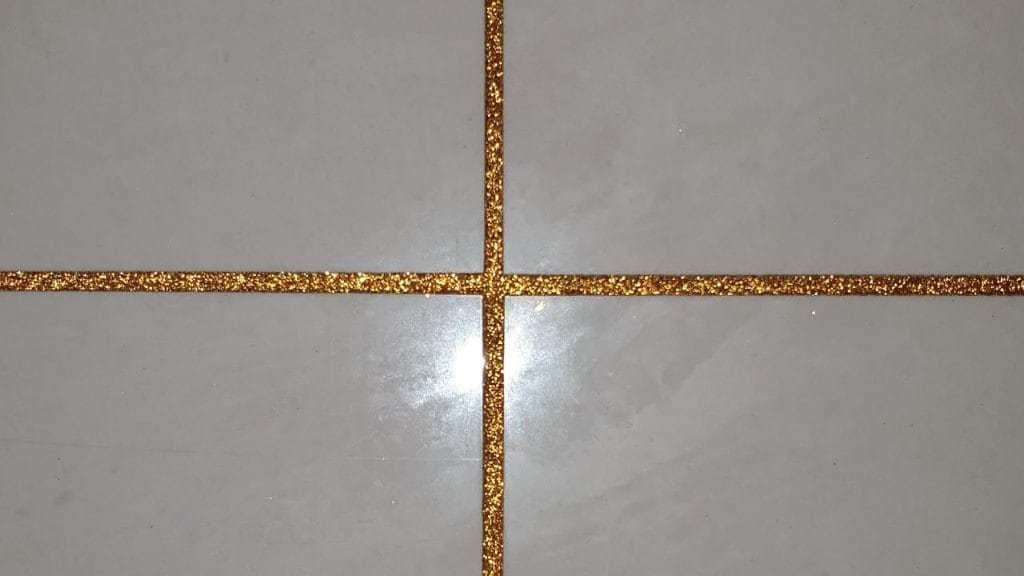Have you ever wondered if there is a solution that can truly halt water in its tracks? Epoxy grout is often touted as a powerful ally in the battle against water damage. But does it truly live up to these promises? Let’s explore the intricacies of epoxy grout and its effectiveness in sealing out water for good.
What Is Epoxy Grout?
- Epoxy grout, a durable and waterproof material, consists of epoxy resins and a filler powder, making it ideal for areas prone to water exposure. When it comes to epoxy grout application, the process requires precision and attention to detail. Begin by mixing the epoxy resin with the filler powder according to the manufacturer’s instructions. Ensure a thorough blend to guarantee the grout’s effectiveness.
- During application, use a rubber float to press the epoxy grout firmly into the spaces between tiles. Work in small sections to prevent drying before completion. Once applied, clean the excess grout from the tiles using a damp sponge. Allow the grout to cure completely before exposing it to water.
- Regarding epoxy grout maintenance, regular cleaning with a pH-neutral cleaner is key to preserving its waterproof properties. Avoid harsh chemicals that can deteriorate the grout over time. Additionally, inspect the grout for any signs of damage and address them promptly to prevent water seepage. By following proper application and maintenance procedures, you can ensure the longevity and effectiveness of epoxy grout in water-exposed areas.

Properties of Epoxy Grout
- With exceptional durability and unparalleled waterproofing capabilities, epoxy grout stands out as a top choice for areas exposed to water. Epoxy grout is known for its outstanding water resistance, making it ideal for use in bathrooms, kitchens, and other wet areas where traditional grout may fail. Its unique chemical composition creates a non-porous surface that repels water, preventing moisture from seeping in and causing damage over time.
- Durability is another key property of epoxy grout. Unlike cement-based grout, epoxy grout is highly resistant to stains, chemicals, and wear, ensuring a long-lasting and attractive finish. Its robust nature makes it suitable for high-traffic areas and environments where hygiene is crucial, such as hospitals and restaurants.
- In addition to its water resistance and durability, epoxy grout is also easy to clean and maintain, further enhancing its appeal for use in water-exposed areas. Overall, the exceptional properties of epoxy grout make it a reliable choice for ensuring long-term protection against water damage while maintaining a stylish and functional space.
Benefits of Epoxy Grout
- Experience the unparalleled benefits of epoxy grout in maintaining a waterproof and durable surface in water-exposed areas. Epoxy grout provides a superior waterproof seal compared to traditional cement-based grouts. This waterproof seal prevents water penetration, making it ideal for areas prone to moisture such as bathrooms, kitchens, and swimming pools. The durability advantage of epoxy grout lies in its resistance to stains, chemicals, and cracking, ensuring a long-lasting and aesthetically pleasing finish.
- Furthermore, epoxy grout is highly resilient to harsh cleaning agents, making it easier to maintain and prolonging its lifespan. Its non-porous nature also inhibits the growth of mold and mildew, contributing to a healthier environment. The durability of epoxy grout means that it can withstand heavy foot traffic and frequent cleaning without deteriorating, making it a reliable choice for both residential and commercial settings.
Limitations of Epoxy Grout
- Despite its many advantages, epoxy grout does come with some limitations that need to be considered before choosing it for your project. When it comes to waterproofing effectiveness, epoxy grout is highly resistant to water penetration, making it an excellent choice for areas prone to moisture. However, it’s essential to note that while epoxy grout itself is waterproof, the installation process is crucial in ensuring that the entire tiled surface is adequately sealed.
- Installation challenges can also be a limitation of epoxy grout. Unlike traditional cement grout, epoxy grout can be more difficult to work with due to its quick setting time and the need for precision during application. Additionally, epoxy grout can be more expensive than other types of grout, which may impact the overall cost of your project. It’s essential to weigh these factors against the benefits of epoxy grout to determine if it’s the right choice for your specific needs.
Tips for Using Epoxy Grout
When working with epoxy grout, ensuring a thorough and precise installation process is key to maximizing its waterproofing effectiveness. Here are some essential tips to help you make the most out of your epoxy grout application:
- Firstly, when it comes to cleaning techniques, remember that epoxy grout can be a bit trickier to clean than traditional grout. Avoid using acidic cleaners as they can damage the epoxy. Instead, opt for pH-neutral cleaners to maintain the grout’s integrity over time.
- Secondly, consider the color options available for epoxy grout. Unlike traditional grout, epoxy grout offers a wide range of colors to choose from, allowing you to match or complement your tiles perfectly. Take your time to select the color that best suits your project to achieve a cohesive and visually appealing result.
Conclusion
In conclusion, epoxy grout is an excellent choice for stopping water due to its waterproof properties and resistance to stains and chemicals. It provides a durable and long-lasting solution for areas prone to water exposure, such as showers, kitchens, and bathrooms. By following proper installation techniques and maintenance tips, epoxy grout can effectively prevent water infiltration and protect your surfaces for years to come.